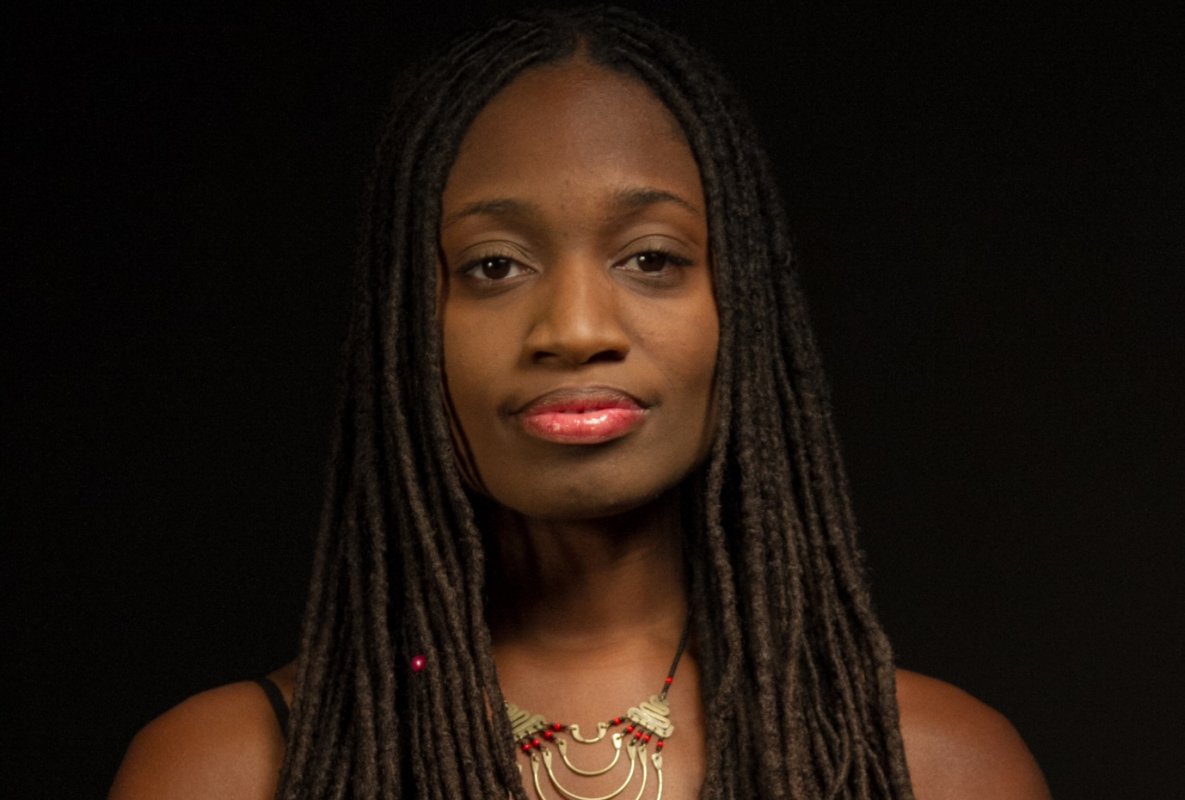Playwright Aleshea Harris writes not only to provoke but to light fires under audiences, transporting them, right there in the theatre, from spectatorship to engagement. Depending on who’s watching, their feelings may be one of validation -- or discomfort – bewilderment or revelation.
With her background as a spoken word poet, Harris’ pulsing, rhythmic language leaves the quotidian, takes a bite out of life, creating amplified worlds inhabited by complex folk: mothers, rivals, mentors, grandmothers, soldiers, even a girl who uses her invisible powers to bring back the dead. No two-dimensional Black characters here.
Intense with emotion, Harris’s people unapologetically live with rage, loss, misogyny, and danger, experience betrayal, revenge, celebration, and bad news. Underneath it all, they manifest vulnerability and deep, powerful love. With their ranging type sizes, even her nuanced scripts shimmer with personality.
Her sources? They range wide from frontier narratives, to ancient Greek tragedy, and hip-hop. Southern inflections arise; fragments from a speech by Sojourner Truth crop up in a monologue, and then there’s that flicker of Eartha Kitt’s sass.
Moving beyond the confines of play versus ritual versus pageant, Aleshea Harris opens us into the future.
photo: Costa Ciminiello and Andrew Wofford


